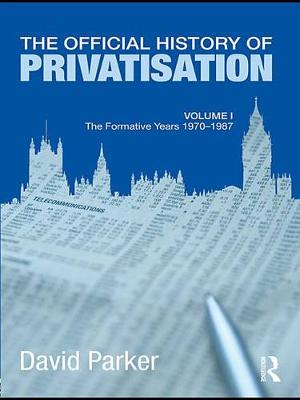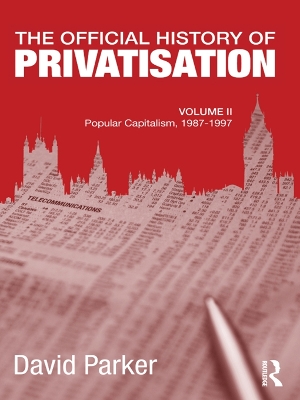Government Official History
2 total works
This first volume of the Official History studies the background to privatisation, and the privatisations of the first two Conservative Governments led by Margaret Thatcher from May 1979 to June 1987. First commissioned by the then Prime Minister Tony Blair as an authoritative history, this volume addresses a number of key questions:
- To what extent was privatisation a clear policy commitment within the Thatcher Governments of the 1980s - or did Government simply stumble on the idea?
- Why were particular public corporations sold early in the 1980s and other sales delayed until well into the 1990s?
- What were the privatisation objectives and how did they change over time, if at all?
- How was each privatisation planned and executed, how were different City advisers appointed and remunerated, what precise roles did they play?
- How was each privatisation administered; in what ways did the methods evolve and change and why? How were sale prices determined?
- Which government departments took the lead role; what was the input of the Treasury and Bank of England; and what was the relationship between Ministers and civil servants?
The study draws heavily from the official records of the British Government to which the author was given full access and from interviews with leading figures involved in each of the privatisations – including ex-Ministers, civil servants, business and City figures, as well as academics that have studied the subject. This new official history will be of much interest to students of British political history, economics and business studies.
This is Volume II of Professor Parker's authoritative Official History of Privatisation, covering the period from the re-election of Margaret Thatcher in 1987 to the election of Tony Blair in 1997.
Volume II considers in detail several of the major privatisations, including those of airports, steel, water, electricity, coal and the railways, as well as a number of smaller ones. Each privatisation involved major challenges in terms of industrial restructuring, organising successful sales and, in a number of cases, establishing effective regulatory regimes. The policy evolved and new methods of selling and regulating were put in place that enabled further disposals to occur. Monolithic nationalised industries with their emphasis on the benefits of economies of scale, vertical integration and rationalisation, were replaced by industrial structures rooted in the importance of commercial management, risk taking and competition. In government departments and parts of the National Health Service, direct employees were replaced by private contractors, and private investment became a characteristic of public infrastructure in the form of PFI/PPP schemes.
This study draws heavily on the official records of the British government, to which the author was given full access and on interviews with the leading figures involved in each of the privatisations, including ex-ministers, civil servants, business and City figures, as well as academics that have studied the subject.
This book will of great interest to students of privatisation, British political history and of business and economics in general.

